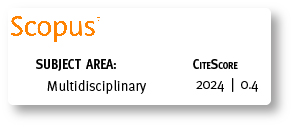Perceived benefits, motivations and preferences for foreign language learning by older adults. Insights from an initiative in Cuenca, Ecuador
DOI:
https://doi.org/10.18537/mskn.07.01.03Keywords:
older students, educational motives, learning benefits, EFLAbstract
This study explores the perceptions and attitudes of older adults from Cuenca, Ecuador, towards English language learning. A total of 151 people (mean age 70.3 years) responded to a questionnaire consisting of 50 items. Factor, multiple regression and cluster analysis were conducted with the objective to define the dimensions underlying older adults’ perceptions, motivations, and ambitions to learn later in life a foreign language and their relation to the socio-demographic characteristics of the participating group. Findings suggest that the interest to study a foreign language is based on the perceptions that it improves a person’s social interaction, personal development, functioning and maintenance of mind and memory, and it activates and makes life more dynamic. Results revealed that the participants’ main motivation to take an English language course is related to the increased potential of using this language in daily life and the ability of insightful reading of English texts. The duration of the course and the attainment of a certificate were determinant factors, and enabled the grouping of the participants according to their preferences with respect to the practical design of an English course. Furthermore, age and school level were found to be the motivating variables affecting most of the participants’ responses.
Downloads
Metrics
References
Alvarado, L., 2008. Enseñanza de español como segunda lengua para adultos mayores: Algunas consideraciones. Filología y Lingüística, 34(2), 89-105.
Antoniou, M., G. Gunasekera, P. Wong, 2013. Foreign language training as cognitive therapy for age-related cognitive decline: A hypothesis for future research. Neuroscience and Biobehavioral Reviews, 37, 2689-2698.
Boulton-Lewis, G.M., 2010. Education and learning for the elderly: Why, how, what. Educational Gerontology, 36(3), 213-228.
Cooley, S., I. Deitch, M. Harper, G. Hinrichsen, M. Lopez, V. Molinari, 1998. What practitioners should know about working with older adults. Professional Psychology: Research and Practice, 29(5), 413-427.
Covey, H.C., 1980. An exploratory study of the acquisition of a college student role by older people. The Gerontologist, 20(2), 173-181.
Cox, C., 1991. Why older adults leave the university: A comparison of continuing and noncontinuing students. Educational Gerontology, 17, 1-10.
Cummins, P.A., S.R. Kunkel R.M. Walker, 2015. Adult education and training programs for older adults in the U.S.: National results and cross-national comparisons using PIAAC Data. Retrieved from http://miamioh.edu/cas/academics/centers/scripps/research/publications/ 2015/02/Adult-Educational-and-Training-Programs-for-Older-Adults.html, 68 pp.
Dörnyei, Z., 2001. Teaching and researching motivation. Harlow, United Kingdom: Pearson.
Enriquez, S., 2007. La enseñanza de la oralidad en talleres de inglés para adultos mayores. Puertas Abiertas, 3(3), 47-52.
Findsen, B., M. Formosa, 2011. Lifelong learning in later life. Rotterdam, The Netherlands: Sense Publishers.
Gardner, R.C., 1985. Social psychology and second language acquisition. The role of attitudes and motivation. London: Edward Arnold Publishers.
Hubenthal, W., 2004. Older Russian immigrants’ Experiences in learning English: Motivation, methods, and barriers. Adult Basic Education, 14(2), 104-126.
INEC, 2015. Proyecciones poblacionales. In: Población y Demografía. Retrieved from http://www.ecuadorencifras.gob.ec/proyecciones-poblacionales/.
Kim, T.-Y. Y.-K. Kim, 2014. Elderly Korean learners' participation in English learning through lifelong education: Focusing on motivation and demotivation. Educational Gerontology, 41(2), 120-135.
Kops, B., 2008. Older adults in lifelong learning: Participation and successful aging. Canadian Journal of University Continuing Education, 34(1), 37-62.
Lakin, M., L. Mullane, S. Porter, 2007. Framing new terrain: Older adults & higher education. American Council on Education. Retrieved from http://fliphtml5.com/liuu/nlfz/basic, 32 pp.
Larsen-Freeman, L., M. Long, 1994. Introducción al estudio de la adquisición de segundas lenguas. Madrid, Spain: Gredos.
Manheimer, R.J., 2005. The older learner’s journey to an ageless society: Lifelong learning on the brink of a crisis. Journal of Transformative Education, 3(3), 198-220.
Mehotra, C.M., 2003. In defense of offering educational programs for older adults. Educational Gerontology, 29(8), 645-55.
Nizamuddin, M., 1999. Population Ageing: An Overview. In: Cliquet, R., M. Nizamuddin (Eds.). Population Ageing: Challenges for Policies and Programmes in Developed and Developing Countries. Brussels, Belgium: UNFPA and CBGS.
Nuevo ciclo académico para Universidad del Adulto Mayor, 2014. La Tarde. Retrieved from http://www.latarde.com.ec/2014/01/22/nuevo-ciclo-academico-para-universidad-del-adulto-mayor/.
Palumbo, F., C.N. Lauro, M.J. Greenacre, 2010. Data analysis and classification. Berlin, Germany: Springer.
Purdie, N., G. Boulton-Lewis, 2003. The learning needs of older adults. Educational Gerontology, 29, 129-149.
Requejo, A., 2008. The learning of the elderly and the profile of the adult educator. Convergence, 41(2/3), 155-172.
Romaniuk, J.G., M. Romaniuk, 1982. Participation motives of older adults in higher education: The Elderhostel experience. The Gerontologist, 22, 364-368.
Scala, M.A., 1996. Going back to school: Participation motives and experiences of older adults in an undergraduate classroom. Educational Gerontology, 22(8), 747-773.
United Nations Population Fund, 2012. Ageing in the Twenty-First Century: A celebration and a challenge. Retrieved from http://www.unfpa.org/sites/default/files/pub-pdf/Ageing%20report.pdf, 192 pp.
United Nations World Assembly Vienna, 1983. International Plan of Action on Aging. Retrieved from http://www.un.org/es/globalissues/ageing/docs/vipaa.pdf.
Villar, F., S. Pinazo, C. Triadó, M. Celdrán, C. Solé, 2010. Older people’s university students in Spain: a comparison of motives and benefits between two models. Ageing & Society, 30, 1357-1372.
Yuni, J., C. Urbano, 2005. Educación de Adultos Mayores: Teoría, Investigación e Intervenciones. Córdova, Argentina: Editorial Brujas.
Downloads
Published
How to Cite
Issue
Section
License
Copyright © Autors. Creative Commons Attribution 4.0 License. for any article submitted from 6 June 2017 onwards. For manuscripts submitted before, the CC BY 3.0 License was used.
![]()
You are free to:
 |
Share — copy and redistribute the material in any medium or format |
 |
Adapt — remix, transform, and build upon the material for any purpose, even commercially. |
Under the following conditions:
 |
Attribution — You must give appropriate credit, provide a link to the licence, and indicate if changes were made. You may do so in any reasonable manner, but not in any way that suggests the licenser endorses you or your use. |
| No additional restrictions — You may not apply legal terms or technological measures that legally restrict others from doing anything the licence permits. |









